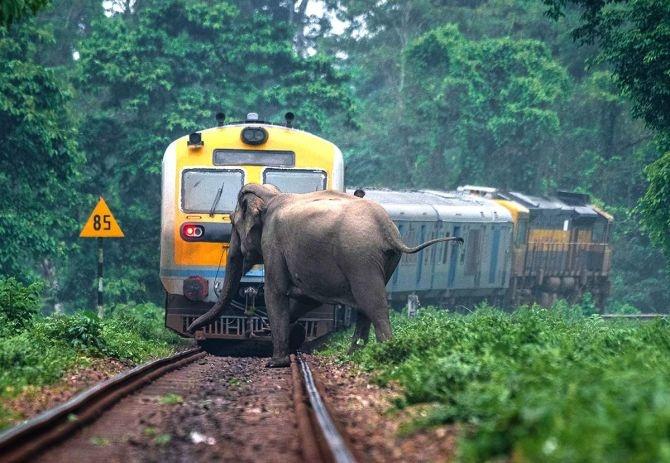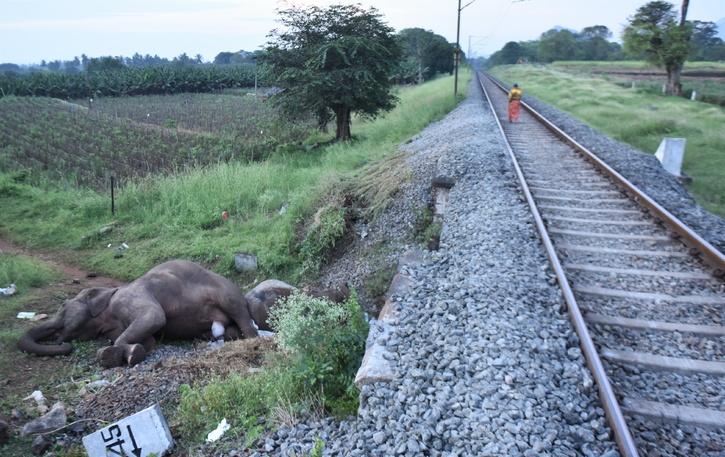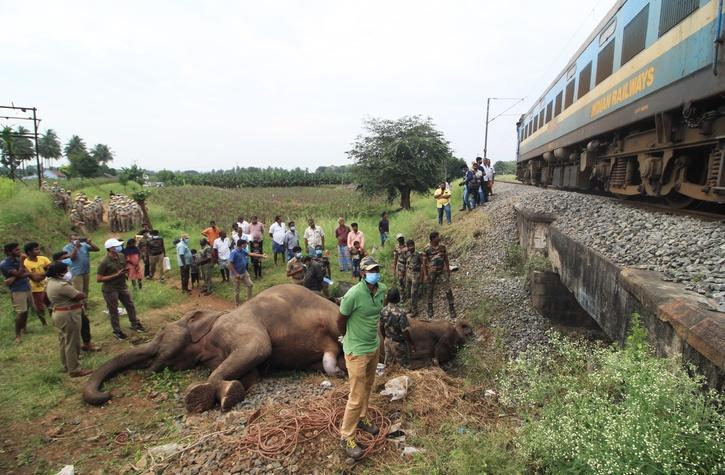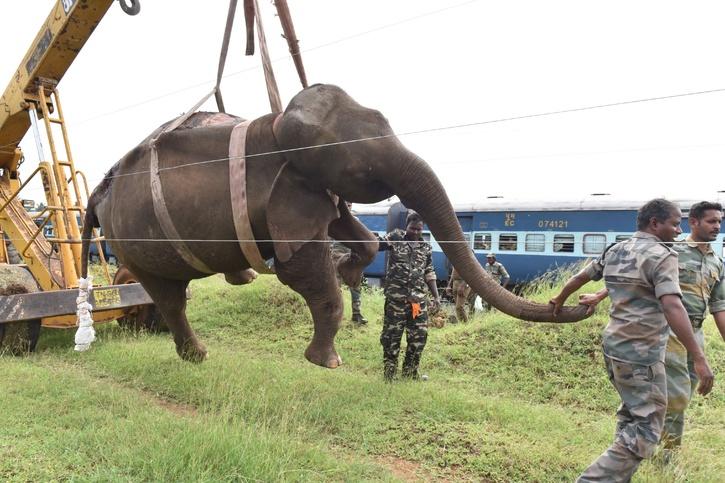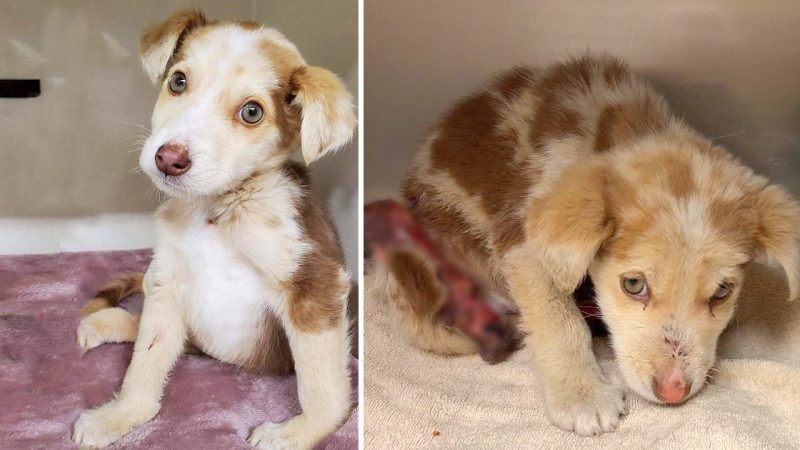A Heartbreaking Tale: Animals Falling Victim to Trains
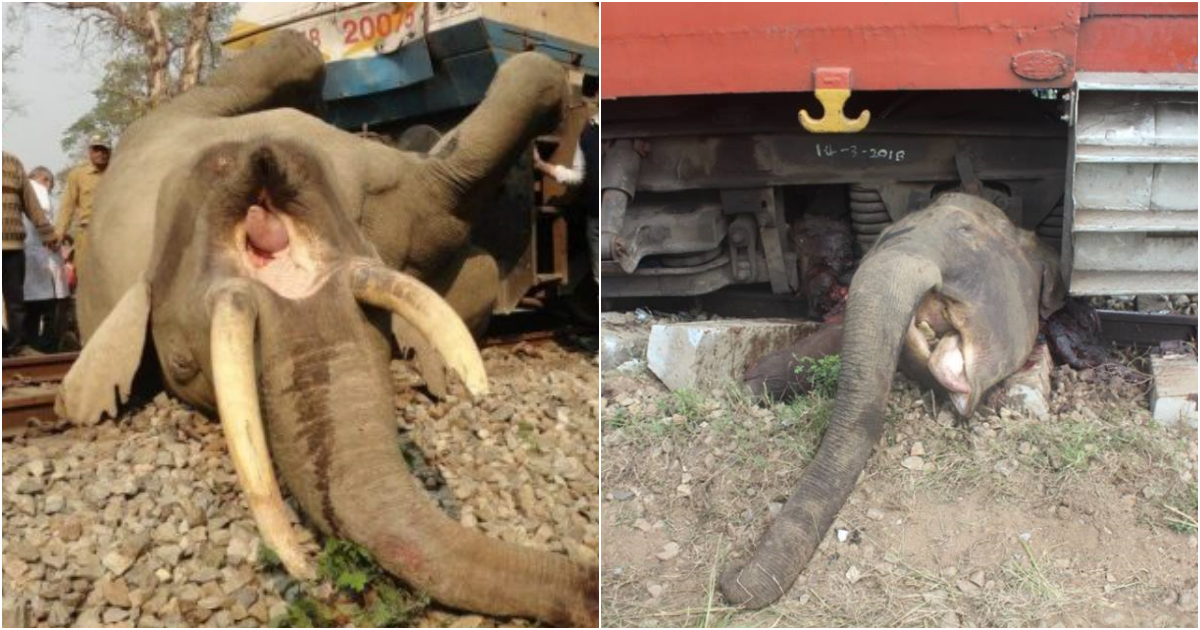
In the midst of our busy lives, as we commute from one place to another, a tragic and often overlooked consequence unfolds beneath our wheels. Trains, the epitome of human progress and connectivity, have unwittingly become a grave threat to innocent creatures who share their habitats. This article sheds light on the heart-wrenching reality of animals losing their lives at the hands of locomotives, urging us to recognize the urgent need for change.

- The Silent Victims:
Every year, countless animals fall victim to the merciless wheels of trains, leaving behind a trail of devastation. From majestic deer to elusive foxes, from migratory birds to tiny reptiles, no species is spared from this tragic fate. The railways, once traversing natural landscapes teeming with life, now impose an insurmountable barrier and a deadly hazard for these vulnerable creatures.
- Unforeseen Consequences:
As trains crisscross through vast territories, ecosystems are fragmented and disrupted, leaving animals disoriented and exposed to perilous crossings. Habitats that were once abundant with food, shelter, and breeding grounds are now reduced to narrow strips of land, forcing wildlife to navigate treacherous paths in their struggle for survival. The outcome is catastrophic, with countless lives lost and entire populations threatened with extinction.
- The Toll on Biodiversity:
The impacts of trains on wildlife extend far beyond individual tragedies. Species diversity and ecological balance are at stake, as the relentless march of locomotives cuts through natural corridors, severing crucial migration routes. With disrupted movement patterns, animal populations become isolated, leading to decreased genetic diversity and the subsequent decline of species. The ramifications reverberate through the ecosystem, disrupting delicate relationships that have evolved over millennia.
- Collisions of Life and Steel:
As trains hurtle forward at immense speeds, encounters with wildlife become unavoidable. Animals are often unable to perceive the looming danger until it is too late. Collisions with trains not only result in instant fatalities but also cause immense suffering for the injured, who may languish without aid until their final breath. The harrowing scenes of animals helplessly succumbing to the force of a passing train demand our attention and compassion.
- Seeking Solutions:
While the problem may seem insurmountable, there are measures that can be implemented to mitigate the toll on wildlife. Constructing animal underpasses or overpasses can provide safe crossing points, allowing animals to navigate the railways without risking their lives. Fencing along the tracks can act as a deterrent, guiding animals away from danger zones. Moreover, incorporating wildlife impact assessments into railway planning and ensuring train speeds are reduced in vulnerable areas are critical steps towards minimizing harm.
– A Call to Action:
The responsibility to protect our fellow inhabitants of this planet falls upon us. It is not enough to acknowledge the issue; we must take decisive action to address it. Governments, railway authorities, and conservation organizations must collaborate to find innovative solutions and implement comprehensive strategies that prioritize both human transportation needs and wildlife conservation. Public awareness campaigns can play a crucial role in educating communities about the impact of trains on wildlife, fostering a sense of empathy and driving change.
- The time has come for us to confront the sobering reality of animals being mercilessly killed by trains. We must recognize the urgent need to balance progress with environmental stewardship. Let us envision a future where the rumble of trains and the harmonious existence of wildlife can coexist, fostering biodiversity and preserving the beauty and wonder of our natural world. It is within our power to rewrite this tragic narrative and ensure a safer passage for all beings who call this planet home.

